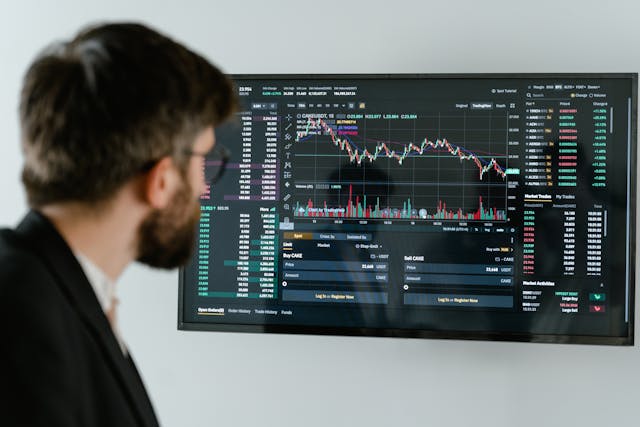NEGOTIATIONS are under way for the Asean Digital Economy Framework Agreement (Defa), which will be the world’s first regional digital economy agreement (DEA).
The first round of talks began at the start of December last year, and the aim is to wrap things up by 2025. Already, there are some calls for the discussions to be sped up.
In a new position paper that lists its recommendations for the Defa, the EU-Asean Business Council (EU-ABC) stressed the “urgency for Defa’s implementation”.
The agreement aims to develop rules for seamless digital trade and secure data flow between member states.
“(Defa) has the potential to propel Asean’s digital economy to US$2 trillion by 2030, doubling the current trajectory,” the EU-ABC wrote, citing figures by the Boston Consulting Group. “We hope that the agreement goes beyond token and voluntary gestures, steering towards binding, tangible, and transformative outcomes.”
As the negotiations go deeper, BT looks at the key principles outlined by Asean leaders and how Defa will eventually serve the region.
Evolution from traditional trade agreements
Asean is becoming part of an increasingly dense network of economic and trade agreements with digitally related provisions.
These include the Comprehensive and Progressive Agreement for Trans-Pacific Partnership (CPTPP), the Regional Comprehensive Economic Partnership (RCEP), and several bilateral DEAs such as the Singapore-Australia DEA and the UK-Singapore DEA.
“The current landscape remains fragmented,” EU-ABC said. “It seems that the plethora of agreements and frameworks are often working in isolation.”
Defa, however, represents an evolution from traditional free trade agreements due to its exclusive focus on the digital economy. Experts believe Defa should adopt and build on these scattered digital provisions to ensure interoperability and integration into the global market.
In February, Maria Monica Wihardja, a visiting fellow at the Iseas-Yusof Ishak Institute, said: “Defa would bring all these different initiatives into one underlying framework or umbrella as many of the areas targeted by these various provisions are linked.”
The ongoing negotiations focus on nine key areas of the digital economy, including cross-border data flows, digital ID, talent mobility, and cooperation on emerging topics such as artificial intelligence.
Balancing data free flow with data governance
The levels of regulation in data governance among Asean member states will determine the extent to which data may be exchanged across borders. The existing regulatory gaps between members could pose difficulties for the development of a comprehensive agreement.
Cybersecurity regulations are the most comprehensive in the Philippines, followed by Vietnam, Singapore and Laos. Meanwhile, Indonesia, Malaysia, the Philippines, Thailand and Vietnam are among the ones that have established intellectual property rights to govern non-personal data sharing.
In terms of personal data protection, Singapore, Malaysia and the Philippines are the early adopters of data privacy laws, while Thailand, Indonesia and Vietnam have implemented their data privacy legislations in the past two years. (*see amendment note)
The different starting points would be a main challenge in negotiating for a common ground, said Dr Wihardja.
On the other hand, data localisation policies can introduce additional points of contention to the negotiations. Implemented to varying degrees in Cambodia, Indonesia, Malaysia, Singapore and the Philippines, these policies restrict the international transfer of data due to national security concerns.
While Dr Wihardja noted that localisation policies will only pose threats to the development of Defa when they are discriminatory, protectionist, non-transparent or non-predictable, there is concern that member states’ pursuit of data localisation will restrict cross-border data flows.
Experts pointed to Japan’s concept of “data free flow with trust”, which underlines that the free flow of data cannot take place in a regulatory vacuum. Rather, it has to be under appropriate data safeguard measures, and this should be the guiding principle for Defa, they said.
Principle-based modular approach
The different extent of data governance across Asean member states calls for a principle-based approach, analysts said.
Rather than prescribing specific measures, Defa should offer an impact-focused framework for cooperation, with ample policy space for member states to determine the governance approaches that best fit their respective local contexts.
Regulators can pursue a progressive alignment of regulations. For example, cross-border e-commerce represents a more developed area of the digital economy, with many Asean members already embracing paperless trade. The ongoing Defa negotiations can leverage existing domestic laws and regional agreements such as the Asean Agreement on E-Commerce.
Conversely, more time is needed for negotiations on less aligned topics such as cross-border cooperation in digital identity initiatives and governance of emerging technologies.
The flexibility of a principle-based agreement would also allow Defa to be “future-proof” and remain relevant as new technologies evolve.
“A key design principle for the Asean Defa is to be a living agreement that adapts to a constantly evolving socio-economic and technological landscape,” said Alpana Roy, Singapore’s senior economic official to Asean who oversees the Asean division at the Ministry of Trade and Industry.
Source: The Business Times. Link: Here
March 21, 2024













